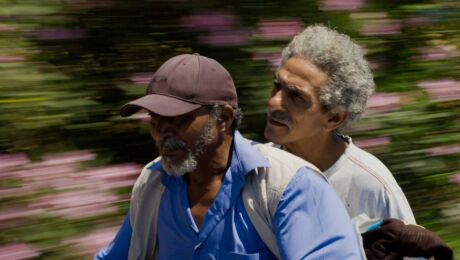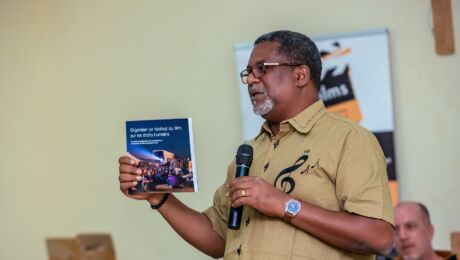Beyond the Screen: How We’re Carving Out Space for Human Rights in Tanzania
Movies that Matter has been supporting film festivals all over the world with our Grant Programme. Every now and then we invite grantees to share their insights. For this edition Elias Maeda, Founding Director of the Sauti Zetu Film Festival in Tanzania, elaborates on the effects on his community he experienced after the festival and gives a little sneak peek into new plans. 15 September, 2025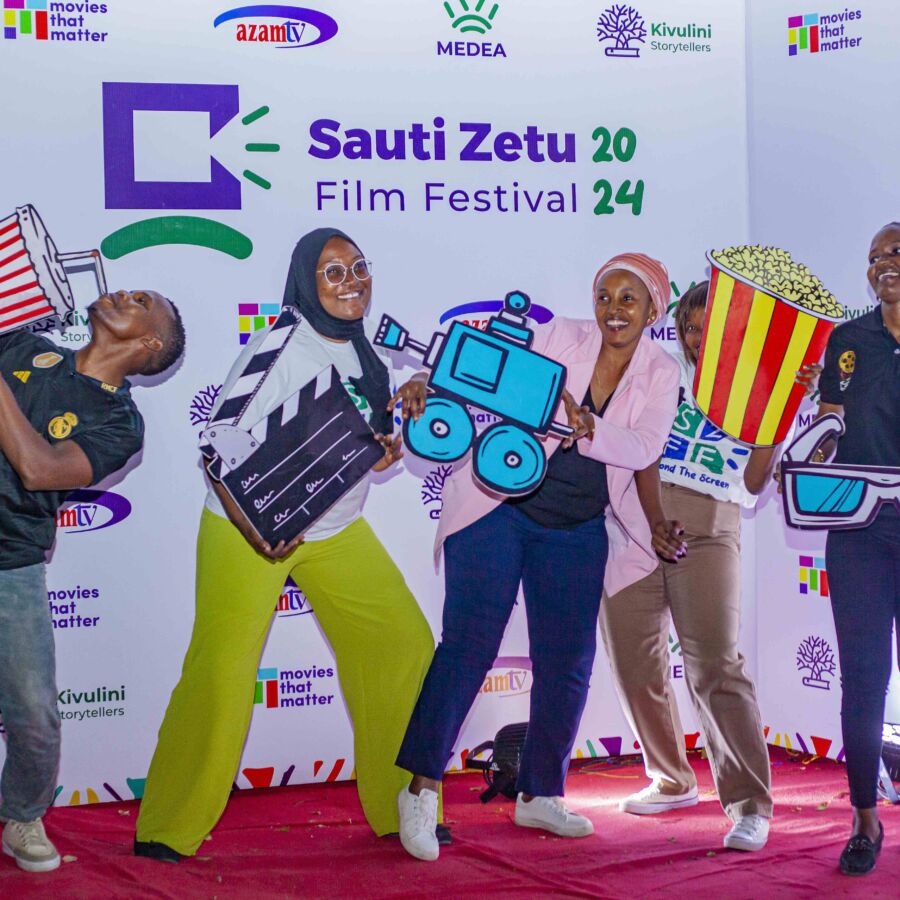
When we first envisioned the Sauti Zetu Film Festival, we were driven by a simple, powerful belief encapsulated in our first tagline, Hadithi Zetu, Sauti Zetu which means “Our Story, Our Voices.” We knew that in a place where open conversations about human rights can be difficult, a shared story could open a door. As the festival director, I’ve had the profound privilege of watching that belief turn into reality. We designed this festival to go Beyond the Screen, using cinema not just as entertainment, but as a safe and powerful catalyst for starting the dormant conversations that our communities are yearning to have.
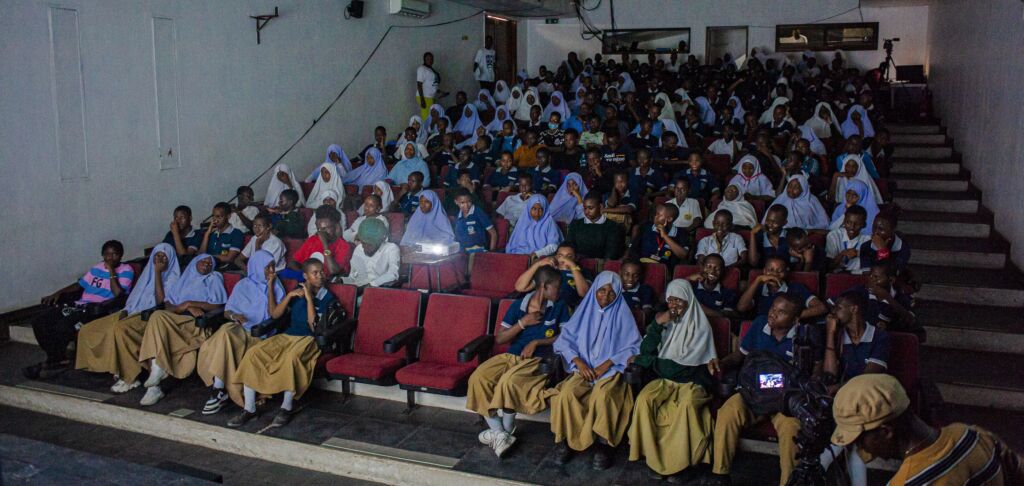
Over the past two editions, our tangible impact has been measured not just in numbers, though we have engaged with over 2,309 people but in the moments of transformation that only a powerful story can unlock. We witnessed this firsthand during a screening of Softie, a raw documentary on political activism in Kenya. The story on screen became a mirror for the audience’s own aspirations and frustrations, creating a palpable energy in the room. It was in that space that panelist and activist Hellen Sisya was moved to declare, “This film has prompted me to rethink how I can return to activism. As we approach the general election, I feel compelled to do something to ensure that youth can exercise their democratic freedoms in light of the existing media oppression”. This is the spark we aim to create, a spark that even caught the attention of a government representative, who noted that while they were initially concerned about our “freedom of expression” agenda, our discussions were so “respectful and constructive” that they are open to continuing their support for this initiative.
This film has prompted me to rethink how I can return to activism. (…)I feel compelled to do something to ensure that youth can exercise their democratic freedoms.
Our method for fostering human rights awareness begins with a commitment to radical accessibility. To reach the less-engaged, we intentionally remove the typical barriers to entry. All our events are free, and we take the cinema directly into trusted community spaces. This ensures that our core method, the professionally facilitated post-screening dialogue, is accessible to everyone. The film provides a common emotional language, a shared experience that allows everyone in the room to safely analyze their own realities. After a particularly intense discussion on reproductive rights, I observed that using film made people comfortable to discuss sexuality and abortion, because it was easy to reflect what has been portrayed in the film with their real life. It is in these conversations that harmful norms are challenged, personal testimonies are shared without judgment, and community-led solutions are born.
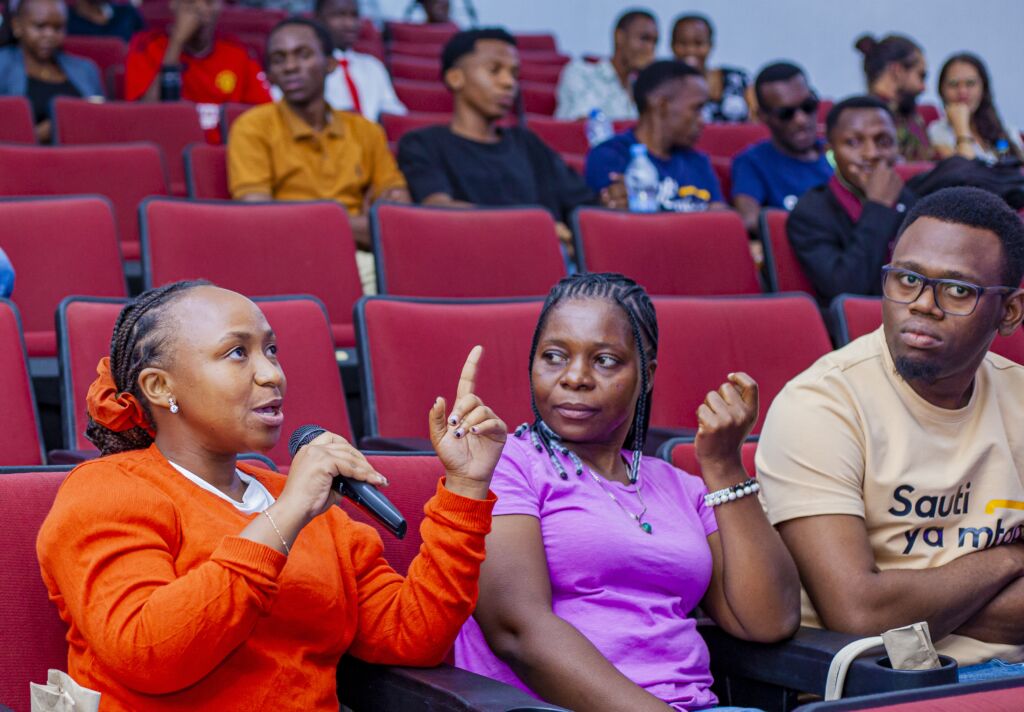
The Sauti Zetu Film Festival has become a resilient movement, and our journey is only just beginning. Our past impact has paved the way for our most ambitious future yet, the upcoming Caravan Edition. We will be taking this powerful model of dialogue and empowerment directly to marginalized and indigenous communities across three regions. By bringing the cinema to the people, we are not just carving out space for human rights, we are proving, one story at a time, that a shared moment of courage can build a more just and equitable future for all.
The most recent Sauti Zetu Film Festival took place from 5-13 September 2025. To stay up to date on the festival’s programming, check out their Instagram.
